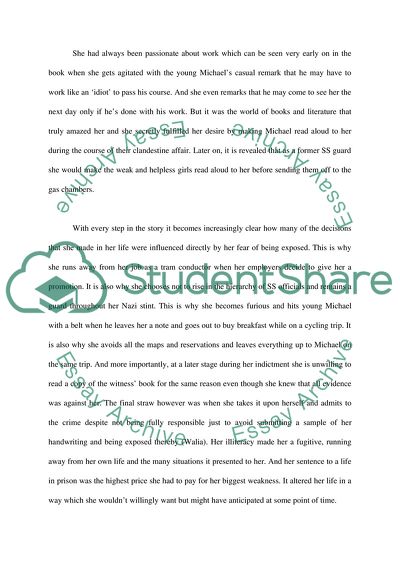Cite this document
(Hanna Schmitz Book Report/Review Example | Topics and Well Written Essays - 1500 words, n.d.)
Hanna Schmitz Book Report/Review Example | Topics and Well Written Essays - 1500 words. https://studentshare.org/literature/1746379-the-reader-why-did-hanna-decided-to-learn-to-read-once-she-was-in-prison
Hanna Schmitz Book Report/Review Example | Topics and Well Written Essays - 1500 words. https://studentshare.org/literature/1746379-the-reader-why-did-hanna-decided-to-learn-to-read-once-she-was-in-prison
(Hanna Schmitz Book Report/Review Example | Topics and Well Written Essays - 1500 Words)
Hanna Schmitz Book Report/Review Example | Topics and Well Written Essays - 1500 Words. https://studentshare.org/literature/1746379-the-reader-why-did-hanna-decided-to-learn-to-read-once-she-was-in-prison.
Hanna Schmitz Book Report/Review Example | Topics and Well Written Essays - 1500 Words. https://studentshare.org/literature/1746379-the-reader-why-did-hanna-decided-to-learn-to-read-once-she-was-in-prison.
“Hanna Schmitz Book Report/Review Example | Topics and Well Written Essays - 1500 Words”. https://studentshare.org/literature/1746379-the-reader-why-did-hanna-decided-to-learn-to-read-once-she-was-in-prison.


